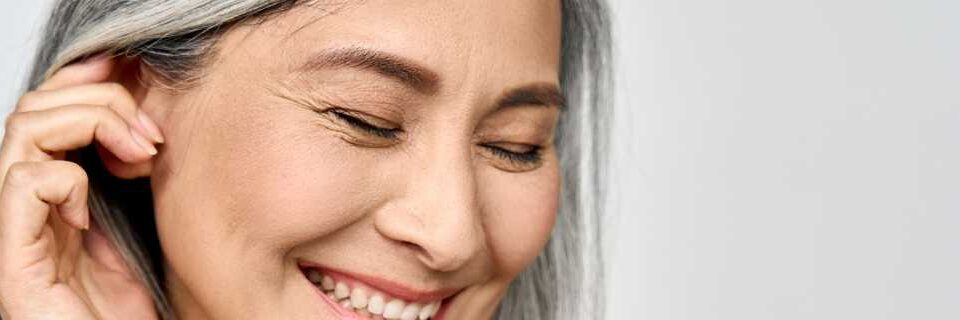
A Definitive Guide to Menopause and Perimenopause

How To Deal With Sleep Problems and Menopause
Table of Contents
Around the world, women are living longer. In 2020, the United Nations estimated there were about 985 million women aged 50 and older. Researchers expect that number to go up to 1.65 billion over the next 30 years. Besides normal complaints like excess abdominal fat and weight gain, postmenopausal women face a higher risk of heart disease, osteoporosis, and cognitive decline. The good news is that fit women have fewer symptoms and illnesses.
Menopause and Health
During and after menopause, women may have these symptoms:
- Sleep problems
- Painful joints
- Aching legs
- Weight gain
- Fatigue
- Vaginal dryness or irritation
- Frequent urinary tract infections
- Changes in metabolism
The lack of estrogen after menopause contributes to weak bones, muscle loss, memory problems, and heart disease. Some women are candidates for hormone replacement, but that decision should be made with a doctor. Everyone, however, benefits from women fitness routines. Women who are fit have fewer and milder symptoms, and they experience better physical and mental health.
Menopause Diet and Exercise
Some studies recommend a plant-based Mediterranean diet that includes whole grains, nuts, seeds, beans, olive oil, fruits, and vegetables. Others also recommend healthy proteins, dairy products, and omega-3 fatty acids from fish. Foods to avoid include processed carbohydrates, added sugar, alcohol, caffeine, spicy foods, and foods high in salt.
Fit women are healthier than those who are sedentary. Exercise helps women lose menopause belly fat, increase muscle mass, and control body weight. Women who are not overweight may be less likely to have breast, endometrial, or colon cancer. Physical activity slows bone loss, lessens back pain, and reduces the risk of diabetes and other chronic conditions. Fit women also have lower risks of depression and dementia.
Tips For Menopause and Exercise
Menopausal women fitness regimens should include 2.5 hours of aerobics each week and exercises for strength and balance. Women with osteoporosis should avoid high-impact aerobics or exercises that might cause falls. Yoga, stretching, martial arts, and deep breathing help with stress and menopause symptoms.
The following exercises help women lose abdominal belly fat and control weight gain caused by menopause:
1. Endurance and Aerobic exercise
Aerobic activities include walking, jogging, swimming (or water aerobics), and biking. Beginners can start with as little as 10 minutes a day and gradually increase the length and intensity of the workout.
2. Strength training
Weight machines, resistance bands, and hand weights can strengthen muscles, improve metabolism, and lower levels of abdominal fat. Beginners usually start with 10 to 12 repetitions and increase the resistance or weight as strength improves.
3. Stretching
Stretching improves flexibility and promotes relaxation. It is best done after workouts when the muscles are warm and flexible.
4. Stability and Balance
Balancing exercises, such as martial arts or yoga, prevent falls and improve steadiness. They strengthen muscles in the core, legs, and lower back and may be simple activities, such as using an exercise ball or standing on one leg. Try yoga for menopause to improve stability, encourage relaxation, and improve flexibility. If you are a beginner, start with a gentle yoga or chair yoga class.
Menopause and Yoga

Yoga, an ancient art of living, comes from the Sanskrit meaning “to join.” The healing practice brings together the mind, body, and spirit. A philosophy, it has eight limbs to achieve harmony and balance. The poses that most people think of as yoga today make up only one limb. The other seven limbs provide pathways for living a healthy, honest, and peaceful life.
A diminishing supply of estrogen during the transition adds pounds and makes it harder to lose menopause belly fat. Increased stress causes cortisol levels to rise, causing pounds to settle around the stomach. Research has shown that a yogic lifestyle can reduce stress and improve overall well-being. Yogis recommend back-bending poses, side bends, chest-opening poses, and inversions. Practicing alternate nostril breathing for five minutes three times a day calms the nervous system and lowers stress levels. Mindfulness and guided meditation improve concentration, and deep breathing encourages relaxation.
Hypnotherapy For Women’s Health
At the Mind-Body Medicine Research Laboratory in Baylor, Texas, Professor Gary Elkins is studying the effects of clinical hypnosis for women’s health. His research includes the use of hypnotherapy for menopause, breast cancer, and sleep disturbances. Recent studies also look at the efficacy of self hypnosis. The Society of Psychological Hypnosis of the American Psychological Association defines hypnotherapy as the use of hypnosis to treat physical or psychological conditions. Often misunderstood, hypnotherapy evokes a heightened state of awareness that allows the mind to absorb suggestions. It is not a trance or sleep.
Hypnosis has been used to treat various medical conditions, including anxiety, depression, chronic and acute pain, headaches, and irritable bowel syndrome. Dr. Elkins used hypnotic suggestions to relieve hot flashes and other symptoms of menopause, allowing many women to discontinue or lower the dose of their medications. Hypnosis also eased hot flashes and anxiety in women with breast cancer. With the use of suggestions, such as imagining cool breezes and relaxing, hot flashes decreased by up to 80%.
Hypnotherapy Made Easy
The UpNow app has audio downloads for women fitness and health. Download the UpNow app, and read our blog to learn more about hypnotherapy for women’s health, insomnia, and other ways to make life more fulfilling.
UpNow Health only uses high-quality sources, including peer-reviewed articles, to support the facts within our articles. All our articles are reviewed by experts to ensure that our content is accurate, helpful, and trustworthy.
1. Antonio Cano, Skye Marshall, Irene Zolfaroli, Johannes Bitzer, Iuliana Ceausu, Peter Chedraui, Fatih Durmusoglu, Risto Erkkola, Dimitrios G. Goulis, Angelica Lindén Hirschberg, Ludwig Kiesel, Patrice Lopes, Amos Pines, Mick van Trotsenburg, Irene Lambrinoudaki, Margaret Rees, The Mediterranean diet and menopausal health: An EMAS position statement, Maturitas, Volume 139, 2020, Pages 90-97, ISSN 0378-5122, https://doi.org/10.1016/j.maturitas.2020.07.001.
2. Mishra, N., Mishra, V. N., & Devanshi (2011). Exercise beyond menopause: Dos and Don’ts. Journal of mid-life health, 2(2), 51–56. https://doi.org/10.4103/0976-7800.92524
3. Elkins, G. R., Fisher, W. I., Johnson, A. K., Carpenter, J. S., & Keith, T. Z. (2013). Clinical hypnosis in the treatment of postmenopausal hot flashes: a randomized controlled trial. Menopause (New York, N.Y.), 20(3), 291–298. https://doi.org/10.1097/gme.0b013e31826ce3ed













